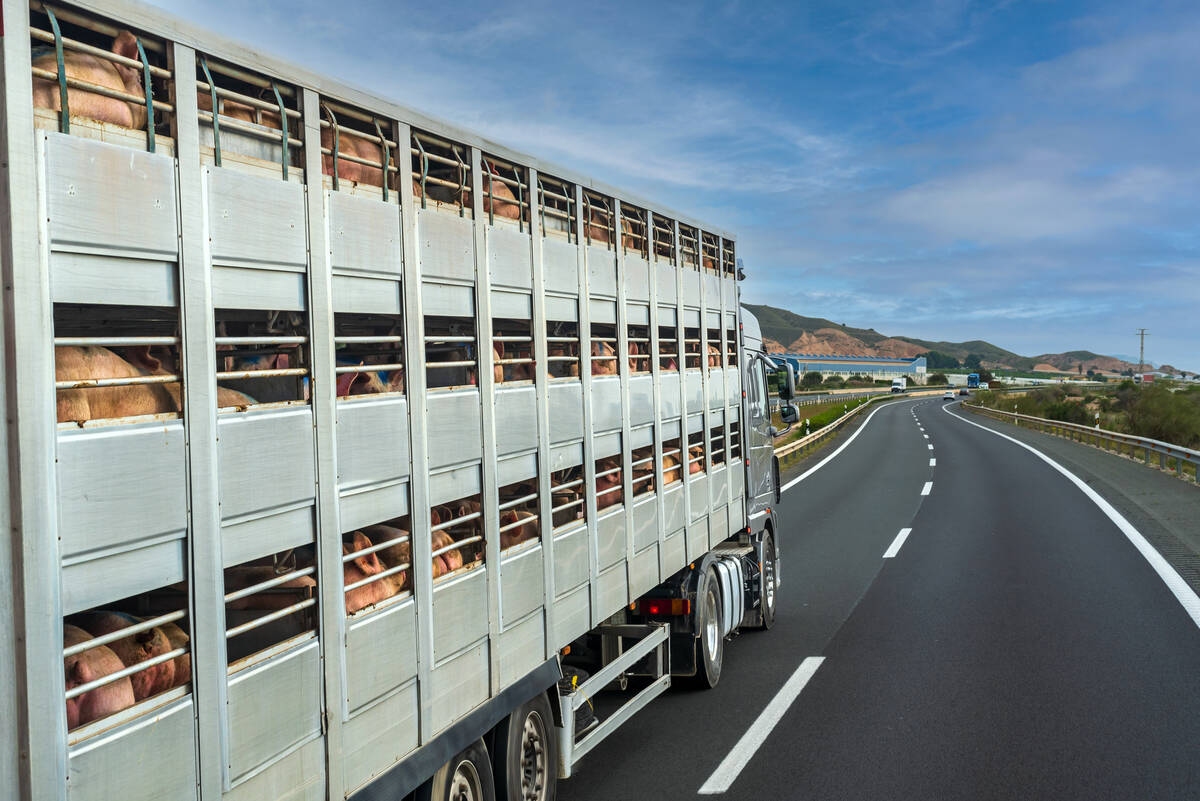U.S. agribusiness and trading firm Cargill Inc. posted a steep drop in quarterly earnings Oct. 10, citing economic uncertainty and volatile commodity markets.
Minneapolis-based Cargill, one of the world s largest privately held corporations, reported $236 million in earnings from continuing operations for the quarter ended on Aug. 31, down 66 per cent from $693 million a year earlier, when the company had an additional $190 million in earnings from its former stake in Mosaic Co.
Revenue rose 34 per cent to $34.6 billion.
It was a tough quarter, said Cargill chief executive Greg Page, adding that results were down from recent levels due largely to the persistently high degree of uncertainty in the global economic envi ronment , which injected turbulence into commodity markets and limited prudent trading opportunities.
Read Also

Pig transport stress costs pork sector
Popular livestock trailer designs also increase pig stress during transportation, hitting at meat quality, animal welfare and farm profit, Agriculture and Agri-Food Canada researcher says
It also cited acquisition- related expenses and outlays related to flooding on U.S. inland waterways, which increased freight costs.
Chinese appetite
for U.S.
corn soars
washington/reuters
China has made its first large purchase of U.S. corn in months 900,000 tonnes and a trade group sees the possibility of mammoth imports.
It was the second-largest corn sale attributed to China and the seventh-largest sale on USDA records. The trade group U.S. Grains Council estimates China will need to import five million to 10 million tonnes of corn during 2011-12 far above the one million tonnes it has bought in each of the last two years.
However, with a growing population experiencing rising incomes, China is producing more meat from herds fattened on corn. It is expected to become a steady and large importer even though it is second to the United States as a corn grower. It is already the world s largest importer of cotton and soybeans.


















